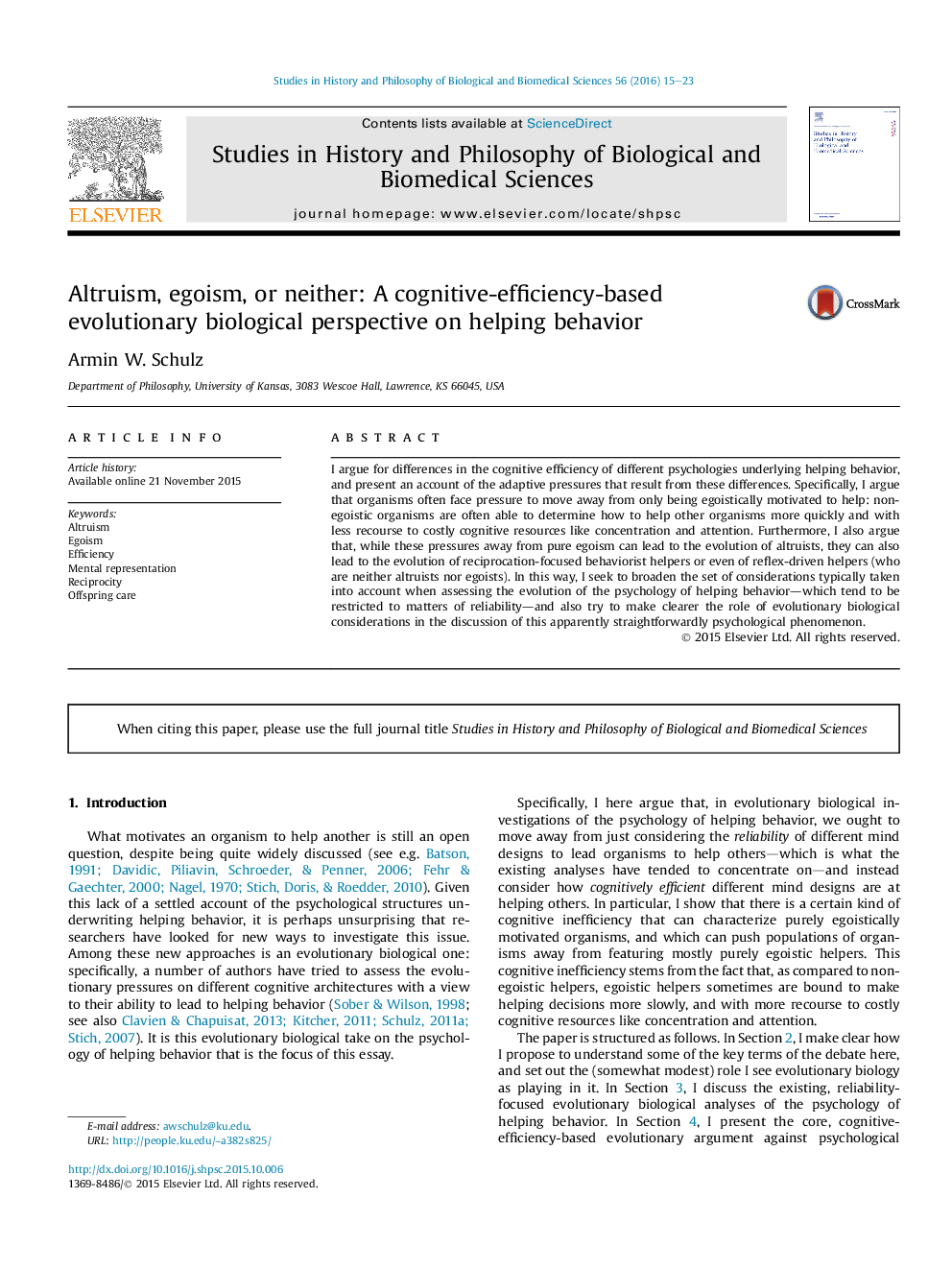| Article ID | Journal | Published Year | Pages | File Type |
|---|---|---|---|---|
| 1161597 | Studies in History and Philosophy of Science Part C: Studies in History and Philosophy of Biological and Biomedical Sciences | 2016 | 9 Pages |
•Non-egoists can be more adaptive than egoists in their helping decisions.•The reason is that they can decide to help others more quickly and efficiently.•These pressures away from pure egoism can lead to the evolution of altruists.•They can also lead to the evolution of reciprocation-focused behaviorist helpers.•They can even lead to the evolution of reflex-driven helpers.
I argue for differences in the cognitive efficiency of different psychologies underlying helping behavior, and present an account of the adaptive pressures that result from these differences. Specifically, I argue that organisms often face pressure to move away from only being egoistically motivated to help: non-egoistic organisms are often able to determine how to help other organisms more quickly and with less recourse to costly cognitive resources like concentration and attention. Furthermore, I also argue that, while these pressures away from pure egoism can lead to the evolution of altruists, they can also lead to the evolution of reciprocation-focused behaviorist helpers or even of reflex-driven helpers (who are neither altruists nor egoists). In this way, I seek to broaden the set of considerations typically taken into account when assessing the evolution of the psychology of helping behavior—which tend to be restricted to matters of reliability—and also try to make clearer the role of evolutionary biological considerations in the discussion of this apparently straightforwardly psychological phenomenon.
